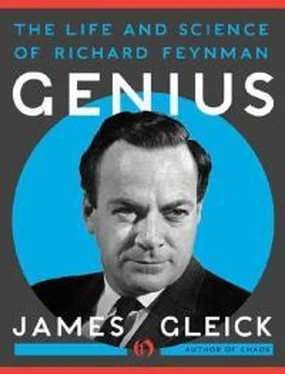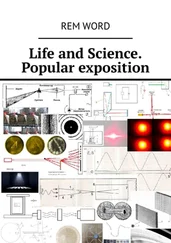CORNELL
For physics as an enterprise within American culture there were two eras. One ended and the other began in the summer of the atomic bombs. Politicians, educators, newspaper editors, priests, and the scientists themselves began to understand the divide that had been crossed.
“Among the divinities of ancient Greece, there was a Titan named Prometheus,” ran a typical essay in The Christian Century the next winter. “He stole fire from heaven and gave it to man… . For this act, Prometheus has been held in highest honor as a benefactor of humanity and the divine patron of science and learning.” No more. Now, rather to the cleric essayist’s delight, the atomic bomb had humbled Prometheus’s heirs, the scientists. Their centuries of progress had decisively ended with their invention of a device of human self-destruction. Now it was time for Christian ministers to step in. Even the scientists, he said,
“have for the first time in history turned aside from their vocation and become statesmen and evangelists, preaching the grim gospel of damnation unless men repent.” Here he was al uding to J. Robert Oppenheimer, for Oppenheimer had already seen the aptness of the Promethean legend—who could have missed it?—and had begun to speak out both to the public and to scientists.
What Oppenheimer preached, however, was more subtle
than a gospel of damnation. He reminded listeners that the religious had long felt threatened by science, and now the only mildly God-fearing public had something real to fear.
He suspected that atomic weapons would scare people more than any scientific development since Darwin’s theory of evolution.
Already, in November 1945, with relieved soldiers and sailors streaming home from the Pacific Theater, before fal out shelters, nuclear proliferation, and ban the bomb had a chance to enter the language, Oppenheimer anticipated the time when celebration would give way to dread. “Atomic weapons are a peril which affect everyone in the world,” he told his friends and col eagues of the past thirty months. His audience fil ed the largest assembly hal in Los Alamos, its movie theater. He knew that the newspapers and magazines glorifying the scientists’ achievement would soon recognize how little real mystery there had been, how unremarkable, actual y, were the problems of nuclear fission (if not implosion), how easy atomic bombs would be to make, and how affordable for many nations.
Prometheus was not the only mythic figure standing in for the scientist; the other was Faust. Lately the Faustian bargain for knowledge and power had not seemed so horrible as it had in medieval times. Knowledge meant washing machines and medicines, and the devil had softened into an amusing character for Saturday cartoons and Broadway musicals. But now the fires in two Japanese cities renewed a primal understanding that the devil was not so tame. It might mean something, after al , to sel him
one’s soul. Oppenheimer knew, partly from introspection, that the scientists had immediately begun to question their own motives. “It’s a terrible thing that we made,” Robert Wilson had said to Feynman, surprising him and pricking his ebul ient bubble. Others were beginning to agree.
Oppenheimer reminded them of what they were reminding themselves: that two years earlier a Nazi bomb had seemed possible and that the American victory had seemed far from inevitable. He acknowledged that these justifications had faded. Some people, he said, might have been driven by a less high-minded motivation, no more than curiosity and a sense of adventure, and he surprised some of them by saying, “and rightly so.” He said it again:
“And rightly so.” Feynman had left Los Alamos several days before, so he did not hear, nor did he need to hear, Oppy’s reminder of their shared credo, a credo now being welded to the most painful act of self-justification they had ever had to perform:
When you come right down to it the reason that we did this job is because it was an organic necessity. If you are a scientist you cannot stop such a thing. If you are a scientist you believe that it is good to find out how the world works; that it is good to find out what the realities are; that it is good to turn over to mankind at large the greatest possible power to control the world… . It is not possible to be a scientist unless you believe that the knowledge of the world, and the power which this gives, is a thing which is of intrinsic value to
humanity, and that you are using it to help in the spread of knowledge, and are wil ing to take the consequences.
Thus spoke a bringer of fire.
The relations between Americans and their scientists had changed. It became an instant truism that science meant power. Science as an institution—“organized science”—ranked second only to the military as a guarantor of what was being cal ed national security. President Harry S Truman told the Congress that fal that America’s role in the world would depend directly on research coordinated by universities, industrial companies, and the government:
“The events of the past few years are both proof and prophecy of what science can do.” In short order the government established an Atomic Energy Commission, an Office of Naval Research, and a National Science Foundation. Permanent national laboratories with no precedent in the prewar world arose at Los Alamos; at Oak Ridge; at Argonne, south of Chicago; at Berkeley; and at Brookhaven, Long Island, on a six-thousand-acre former army site. Money flowed copiously. Before the war the government had paid for only a sixth of al scientific research. By the war’s end the proportions had flipped: only a sixth was financed by al nongovernment sources combined. The government and the public gained a new sense of proprietorship over the whole scientific enterprise.
As physicists began to speak out about world government and the international control of nuclear arms, so an army of
clerics, foundation heads, and congressmen now made the mission and the morality of science a part of their lecture-circuit repertoire.
On the whole, the popular press lionized Oppenheimer and his col eagues. To have worked on the bomb gave a scientist a stature matched only by the Nobel Prize. By comparison it was nothing to have created radar at the MIT
Radiation Laboratory, though by a plausible calculus radar had done more to win the war. The word physicist itself final y came into vogue. Einstein was now understood to be a physicist, not a mathematician. Even nonnuclear physicists acquired prestige by association. Soon Wilson, Feynman’s recruiter, would look back wistful y to “the quiet times when physics was a pleasant, intel ectual subject, not unlike the study of Medieval French in its popular interest.”
The atomic scientists felt the guilt that flowed from the sudden deaths of at least one hundred thousand residents of Hiroshima and Nagasaki; meanwhile the scientists found themselves hailed as hero wizards, and this was a more complex role than many of them realized at first, containing as it did the seeds of darker relationships. In less than a decade Oppenheimer himself would lose his security clearance in the classic McCarthy-era auto-da-fé. The public would find that knowledge created by scientists was a commodity requiring special handling. It could be sta mp e d CLASSIFIED or betrayed to foreign enemies.
Knowledge was the grist of secrets and the currency of spies.
Theoretical physicists, too, had learned something about
their kind of knowledge. Oppenheimer reminded them of it, in his November 1945 talk at Los Alamos. The nature of the work in theoretical physics before the war had forced a certain recognition on them, he said—the recognition that human language has limits, that people choose concepts that correspond only faintly to things in the real world, like the shadows of ghosts. Before the bomb work began, quantum mechanics had already altered the relations between science and common sense. We make models of experience, and we know that our models fail to meet the reality.
Читать дальше












